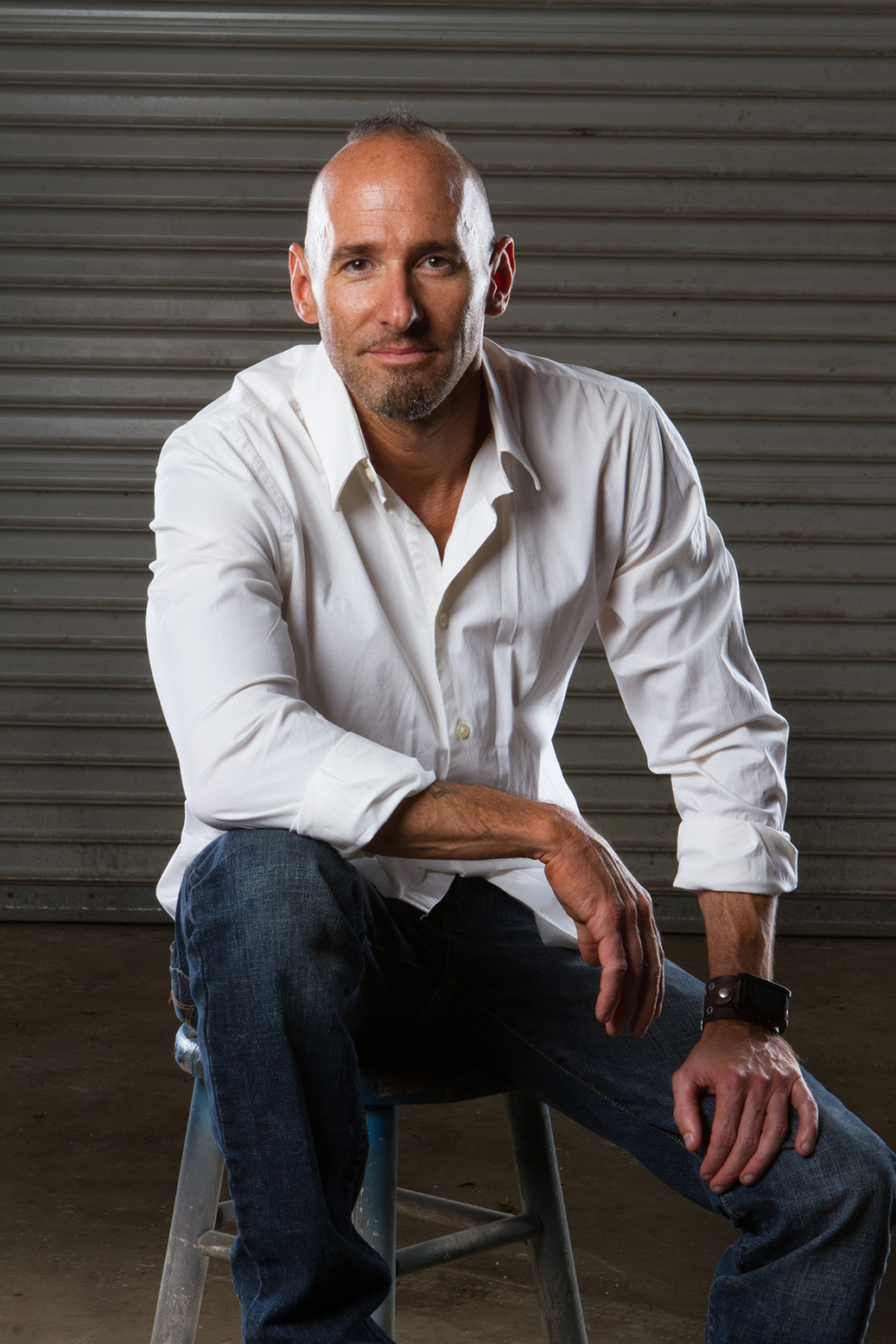Craig Tilley
Artist and scholar of human nature, emerging technologies, and future scenarios
Craig Tilley is an artist, storyteller, and visionary who is redefining the boundaries of art and human connection through his immersive social art project, the Grapevine Wall. Tilley's journey is one of resilience, creativity, and a profound understanding of the human experience.
At the age of 20, Craig Tilley's life took an unexpected turn when he was diagnosed with Stargardt's disease, a genetic eye condition that gradually robs individuals of their central vision. While this diagnosis could have been a devastating blow, Tilley chose to embrace it as an opportunity to see the world in new and profound ways.
On July 29, 2013, Craig boarded a plane with an iPad and an idea that would transform into The Grapevine Wall, a groundbreaking social art project that chronicles humanity's journey through the lens of surreal illustration and real-time events.
The Grapevine Wall is more than just an art project; it is a living, breathing narrative that evolves with the world around us. Each piece of art, known as a VINE, connects to form an intricate tapestry of human experiences, emotions, and aspirations.
The Great Transition
In the face of global challenges, Craig sees human connection as our most powerful asset. He believes that by refocusing from despair toward envisioning ourselves as the heroes of positive change, our bonds and obstacles come into clearer view. This shared vision lays the groundwork for collaborative action toward the greater good.
Tilley calls this disruptive new era the "Great Transition"—a revolutionary period transforming technology, communication, and the human experience. He compares the opacity of our current societal shifts to the obscured nature of personal growth, where progress emerges only in hindsight.
Tilley's Grapevine Wall installation serves as an artistic encapsulation of this historical moment. It's evolving mosaic mirrors our incremental movements toward an uncertain future. At once structured and random, definitive and ambiguous, the piece personifies the tensions that define the Great Transition.
A Legacy of Inspiration
Craig Tilley's work is a testament to the power of human resilience, creativity, and connection. Through his art, he challenges us to see the world in new ways, to embrace technology for the betterment of humanity, and to forge meaningful connections with one another.
Tilley's legacy will not only be his groundbreaking art but also the inspiration he leaves behind. His work encourages us to use our creativity, knowledge, and compassion to build a brighter future for ourselves and for generations to come.

HOW I SEE
I have a rare genetic eye disease called Stargardt's, causing me to lose my center vision. You can see how I see the world from this video.
HOW I DRAW
To create my art, I zoom far into a digital canvas and draw from the flow of the lines. This is how I am able to draw as a legally blind artist.
Backstory
A Life Transformed by Vision
In 1994, Craig Tilley's life took an unexpected turn when he was diagnosed with Stargardt's disease, a genetic eye condition that gradually robs individuals of their central vision. While this diagnosis could have been a devastating blow, Tilley chose to embrace it as an opportunity to see the world in new and profound ways.
T here are few times in our lives when we have those “light switch” moments. You know, the ones where you can look back and define a change that transformed you? My first light switch moment was in college. At just 20 years old, I had my whole life ahead of me. While In class, I felt a little off balance. Then I closed my left eye and saw something that stays wit me to this day. My teacher's head was gone. There was no black hole, but the green blackboard behind him was there. I reopened my left eye and it reappeared. I closed my right eye. This time only a portion of his face was gone, almost like a very strong blur with speckles. I found myself opening and closing one eye at a time to grasp the situation.
I did this several times and could not believe what I was seeing. After class, I quickly told my twin brother, who was attending the same college and, to my surprise, he said he was experiencing the same thing. We would soon find out that we both had a rare macular degenerative eye disease called Stargardt’s. What’s even stranger is that my brother and I are fraternal twins, and this rare disease was not known to have affected anyone else in our family.
The next two decades would be defined by my struggle to cope with a disease that was progressing, incurable, with no clear explanation by the finest doctors to its ultimate severity and speed of progression. What’s even worse, my brother and I were both on a path into the visual arts, and the word “visual” became one of uncertainty and anxiety. It’s not like we could forget about our situation. We lived it every time we open our eyes.
While abandoning the thought of not doing what we love, my brother and I moved forward with our original plans. While my brother was a bit more courageous than I was in his decision to attend the Art Institute of Atlanta and graduating with the honor of Best Portfolio, I stayed in college to get a bachelor’s degree in marketing with a minor in advertising. However, once I moved back to Atlanta and saw the amazing work he was doing, I quickly decided to attend the Art Institute – ironically being the next to graduate with the honor of Best Portfolio.
I spent many years hiding my eye disease for fear of pity and being viewed as incompetent as a commercial artist. I held many positions, including senior designer at a major network broadcasting company where I would be tested in my ability to conceal my disease on a daily basis. Over my professional years, I have strayed away from becoming a true artist and approached my career as a path to build a business where I would ultimately have less input as the creator...just in case my condition became too debilitating to do the work.
Doing what I love was impossible, right? If I work hard and get by, then eventually luck will be on my side, right? If so many other people are afraid of letting go, being themselves and doing what they love, who am I with this extra burden to be able to succeed? These thoughts consumed me as I dreamed big but stopped short of completing…even when I knew it was BS. I wanted change so bad but was afraid of what it would bring.
That was until the next “light switch” moment that would redefine my life and put me on a path to accepting myself as an artist and overcoming my fears
I t was a balmy summer morning as I took my seat on U.S. Airways Flight 1970. The date was July 29, 2013, and I was heading to Chicago for the Climate Reality Leadership Training to learn more about what is going on with our environment.
As we ascended into the clouds, I reached for my iPad and drew a line on a blank, digital canvas. This was not just any line. This line would ultimately put me on a path that would test my endurance as an artist and help me overcome adversity.
With each line came a new piece of the story. What was a two-hour flight turned into an unstoppable work of art. In between fascinating conversations and study, I would finish the piece through my training in Chicago.
As I worked on the illustration, it began to take shape as an environmental piece. I worked from each line with the result telling a story of our reliance on oil and the struggles our world faces as we deal with what is becoming the most important issue of our time.

Now that this first piece was complete, I found myself craving to draw another
As I began to draw with the same technique, I noticed a harmonious flow that was shared by all the VINES. This was especially fascinating, because I do not look at the overall piece, but rather draw whatever I see by spinning the canvas, zooming in to areas and working from the growing lines. I call this process “grape vining".
I began to grow the individual VINES together, and that one line has now turned into an interactive art experience, allowing others to draw lines on a blank canvas and become part of the artwork, part of the story, and part of the movement to raise awareness of climate change and inspire the hope needed to deal with the issues.
The Project Was Born
This resulting project is the Grapevine Wall. It is the story of us, told through surreal scenes and symbolic elements, along with documented highlights from important current events that guide the narrative of the story.
I embrace this amazing journey and feel fortunate to build a platform that can touch the lives of so many people.
